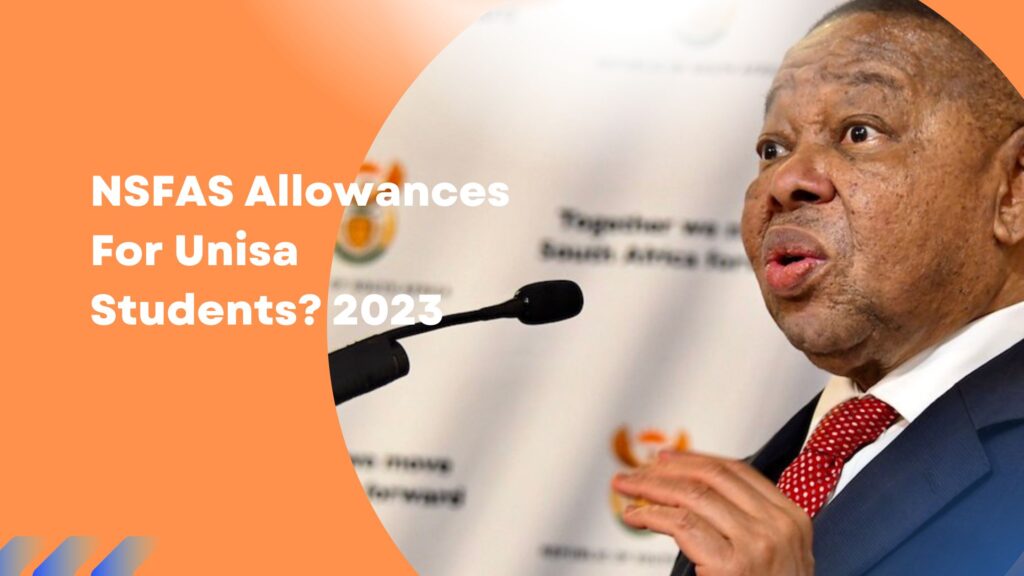Unisa students experience University in a way other Universities do due to them being a distant University. The question we could then ask is, how much do Unisa students get from NSFAS for NSFAS allowances?
There’s always been a debate on NSFAS allowances when it comes to Unisa students. With Unisa being a distance University, what’s included in the NSFAS bursary is a little bit different than other University students.
The University of South Africa ﴾Unisa﴿ makes use of Open and Distance Learning ﴾ODL﴿ which allows students to pursue their degrees, diplomas and certificates by using online resources and study materials provided by Unisa themself. However, some courses offered at Unisa do require students to attend workshops and tutorials which take place outside their homes.
NSFAS does provide funding at Unisa. The allocation of the NSFAS allowances to students is different as the teaching Unisa provides is different to that of other universities.
During his recent update on the NSFAS state of readiness earlier, Higher Education Minister, Blade Nzimande stated that students from distance‐learning universities will receive a personal care allowance of R3,045 per academic year. This requires a student to be registered for a minimum of 120‐course credits in one academic year.
Unisa students who are funded through NSFAS only receive a Learning Materials Allowance and Living Allowance.
Learning Material Allowance is calculated based on the number of modules registered. Unisa students will then receive R600 per module for the first four modules and an R5,460 once‐off amount for five modules to ten modules.
This then means that should the amount of R5200 Learning Materials Allowance be paid for the first five modules, no additional Learning Materials Allowance will be paid for additional modules.\
The Learning Material allowance is to be used for textbooks and other learning materials needed to complete their studies.
Living Allowances are paid to students who are registered for ten or more modules.
Unisa has said, “A student who registers for ten modules and later reduces the number of modules registered will, unfortunately, forfeit this allowance.
Unisa students who are registered for ten modules or more are also allocated an incidental allowance of R290 per month from February to November each year. This R290 is used for any small expenses that arise for these students.
NSFAS will also pay your tuition fees and your registration fee.
NSFAS provides funding for students’ registration at Unisa. The following applies if you are registering:
First‐time NSFAS applicants: Please ensure that you are temporarily registered during Unisa’s registration period while waiting for NSFAS funding confirmation. If your NSFAS application is declined or delayed by the close of the registration period, you will be expected to find alternative funding before your registration will be activated.
Returning NSFAS students who were funded in the year before but have not yet completed their qualification: Please ensure that you are temporarily registered during Unisa’s registration period while waiting for NSFAS funding confirmation for the 2021 academic year.
Returning NSFAS students who received funding the year before, have been declined for funding for the next year and have appealed the decision: Please pay the minimum registration fee while you wait for the NSFAS appeal decision if you chose to do so.
So if your NSFAS application has been provisionally approved then you do not need to pay the minimum registration fee. Your registration will be automatically activated based on the NSFAS funding confirmation received by Unisa.
All students funded by NSFAS who have paid the minimum registration amount to activate their registration will be refunded once NSFAS has confirmed the successful processing of registration data to Unisa.


